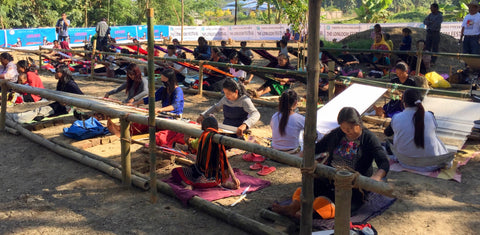News RSS
Ahimsa Silk - Non-violent Silk - Vegan Silk - Peace Silk
“ Non–violence is a quality not of the body, but of the soul” – Mahatma Gandhi . Conventional silk is produced by boiling silkworms alive in their cocoons, thereby killing some 3,000 worms to produce one pound of silk. On the other hand, Ahimsa silk, also known as non-violent or peace silk, is a sustainable and ethical approach to the production of silk which does not involve the killing of the silk worms. In conventional silk production, by preventing the moths escaping, the continuity of the silk thread is maintained thus making a smoother finer silk. Ahimsa silk is produced by allowing the silk moth to be released from the cocoon before the silk is reeled. The piercing of the cocoon...
Khadi
All Khadi is hand woven, but not all hand woven is Khadi. Khadi is hand woven using a yarn that has been hand spun on a chakha. No machinery is used to make either the yarn or the fabric. Khadi production has little or no carbon footprint because of this method. While Khadi is usually manufactured from cotton, contrary to popular belief it is also made from silk and woolen yarn (called Khadi silk and Khadi wool respectively). This eco-friendly fabric is known for its texture, comfortable feel and ability to keep people warm in the winter as well as cool in summer. During the pre-independence era in India the movement of Khadi manufacturing gained momentum under the guidance of Mahatma...
Inspiring India
From Kathy, Founder and General Manager of Sabahar: In December, 2017, I had the great opportunity to travel to India with 4 of my colleagues from Sabahar. Shiferaw, our production manager, has travelled there a couple years ago, but for Yeshiwa (finishing supervisor), Degu (weaving supervisor) and Ermias (master weaver) it was the first time. We had a busy schedule, starting as the invited guests at the Loin Loom Festival in Nagaland, NE India. About 60 weavers (only women weave here) brought their looms and participated in the 3-day festival. The festival was established in order to keep alive the traditional weaving practice and designs of loin loom (back strap) weaving. Nagaland is famous for their highly symbolic woven designs...

